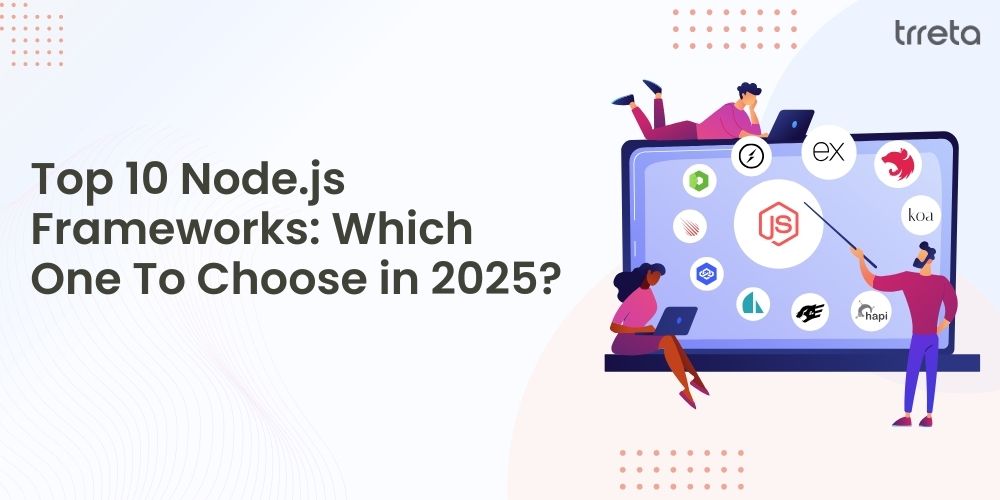Choosing the right Node.js framework in 2025 is more than a developer decision. It’s a business decision too.
As there are many Node.js framework options to choose from, it’s easy to get overwhelmed. And yet, picking the right framework can influence everything from your speed to market to your long-term scalability.
There’s no doubt that it can become the backbone for modern, scalable backends, especially for startups and enterprises building real-time, data-intensive apps.
But remember, not all Node.js frameworks are created equal. Every framework has its own purpose, and picking the right one can make all the difference.
In this guide, we’ll break down the Top 10 Node.js Frameworks worth considering in 2025 - each with real-world context, ideal use cases, and how they stack up.
And if you are new to Node.js, worry not! We’ve also covered - what is nodejs, what Node.js is used for, what is Javascript node, and what does node.js do!
So let’s first have a quick look at that!
What is Node.js and Why Does it Matter in 2025?
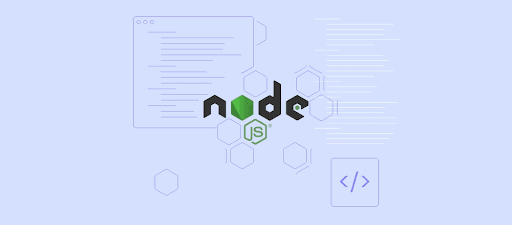
Is Node.Js a framework or…?
If you have the same confusion - let’s get one thing straight - Node.js is a runtime environment, not a framework.
It allows developers to run JavaScript on servers. And this is what makes Node.js backend development possible - making it the preferred choice for everything from real-time chats to API-first enterprise platforms.
So why using node.js is so important in 2025? Because -
- JavaScript is still the universal language for full-stack development.
- Node.js backend lets you build scalable applications that handle thousands of requests per second.
- It powers major platforms like Netflix, LinkedIn, and PayPal.
And want to know why all these big organizations still choose Node.js backend? Explore the top reasons why Node.js is perfect for enterprise app development.
Now that you’ve a fair idea about what is Node.js, let’s discover what is the best Node.js framework for your business.
Top 10 Node.js Frameworks to Watch in 2025
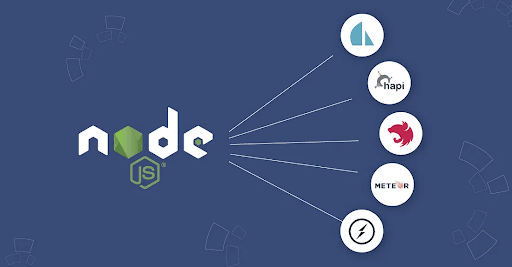
Though there are plenty of Nodejs development frameworks, here we have picked up the top 10 based on speed, scalability, developer experience, and real-world adoption.
Let’s quickly have a look at each of them!
1. Express.js - The Lightweight Classic
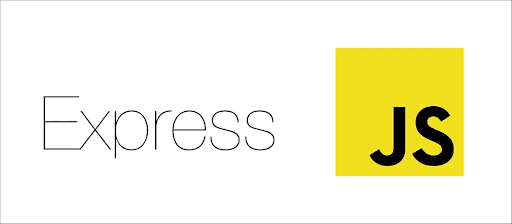
One of the most popular Node.js framework, Express.js is known for its minimalist approach. As a business owner, it gives your team full control over routing, middleware, and handling HTTP requests.
Express.js is best if you are building -
- Custom web applications
- REST APIs
- Microservices
Some of the big companies using express.js includes Uber, Accenture, and IBM!
So, if you're jumping from Node.js to Node frameworks, Express is usually your starting point in nodejs development.
2. NestJS - Enterprise-Grade with TypeScript Power

Another best node js framework is NestJS. It takes inspiration from Angular and uses TypeScript, which by default brings in a clean, modular architecture that’s enterprise-ready.
NestJS is best if you are building -
- Scalable enterprise apps
- Monorepos
- Fintech and SaaS platforms
Companies like Adidas and Capgemini have used NestJS to build their online empire.
Looking for a leading Node.js development company for scalable solutions? Get in touch with our team today to get a free roadmap to your build success!
3. Koa.js - Minimal but Powerful
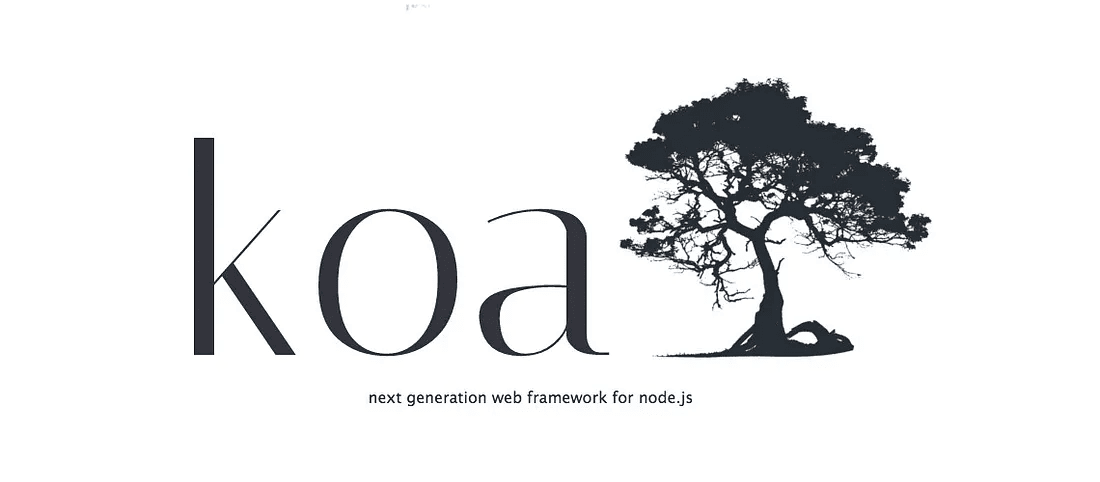
Built by the creators of Express, Koa.js is highly used in nodejs development as it gives developers more control over middleware flow and eliminates callback hell with async/await.
Koa.js is best if you are building -
- Lightweight APIs
- Custom apps with fewer dependencies
Its flexibility makes it a hidden gem for experienced teams building tailored solutions using Node.js backend.
4. Hapi.js - Security-Focused for Scalable APIs

Hapi.js is ideal for industries like healthcare and finance, where security and strong configuration matter the most.
Hapi.js is best if you are building -
- Data-sensitive applications
- Internal tools
- Scalable APIs with user authentication
As Hapi provides built-in input validation and plugin-based design, it becomes a solid foundation for builds where security matters the most!
5. Fastify - Performance at Its Core
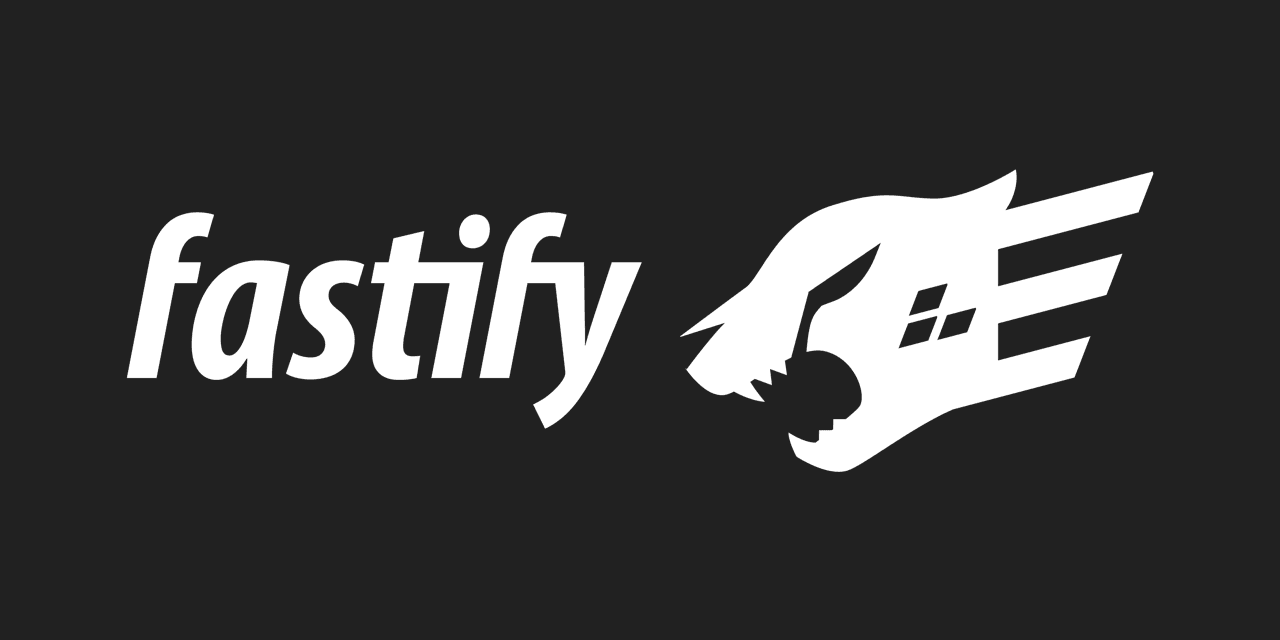
As the name suggests, Fastify is blazing fast. It supports JSON schema validation and provides out-of-the-box tools to optimize throughput.
Fastify is the best if you are building -
- Real-time APIs
- IoT systems
- Performance-critical microservices
Companies like Microsoft and Hotstar use Fastify for high-level performance and speed!
So, remember, if you are looking for speed, Fastify is the best option for nodejs development as it can shave off precious milliseconds at scale.
6. Sails.js - Full MVC for Data-Heavy Apps

Sails.js mirrors the MVC pattern of Ruby on Rails but with JavaScript. It’s great for building apps with heavy data interaction and real-time capabilities.
Sail.js is best if you are building -
- CRMs
- Inventory management
- Real-time dashboards
The best part is, its auto-generated REST APIs reduce boilerplate and accelerate development cycles.
7. LoopBack - API-First Microservices

LoopBack focuses on building powerful REST and GraphQL APIs, especially for complex backends.
So, LoopBack is best if you are building -
- Enterprise systems with multiple integrations
- API gateways
- Monolithic backend modernization
Big companies like GoDaddy, SourceFuse, and Humans of Code use LoopBack as their framework in their NodeJS development.
8. Meteor.js - Real-Time, Full-Stack Simplicity
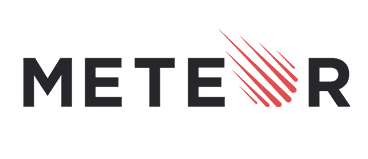
For startups that need speed, Meteor.js provides a full-stack JS experience with built-in real-time data syncing.
Meteor.JS is best, if you are building -
- MVPs
- Chat apps
- Real-time collaboration tools
The good part is - auto-refreshing UI and seamless front-to-back sync make it a good pick for smaller agile teams.
9. Total.js - Feature-Rich with Built-in CMS and Flow Tools

Total.js, one of the best node js framework, offers a full ecosystem - including templates, CMS, and integrations for AI/IoT.
Total.js is best if you are building -
- SaaS tools
- Messaging platforms
- IoT dashboards
It’s a solid choice for companies building node.js backend applications that need more than just an API.
10. Socket.io - Real-Time Communication Layer
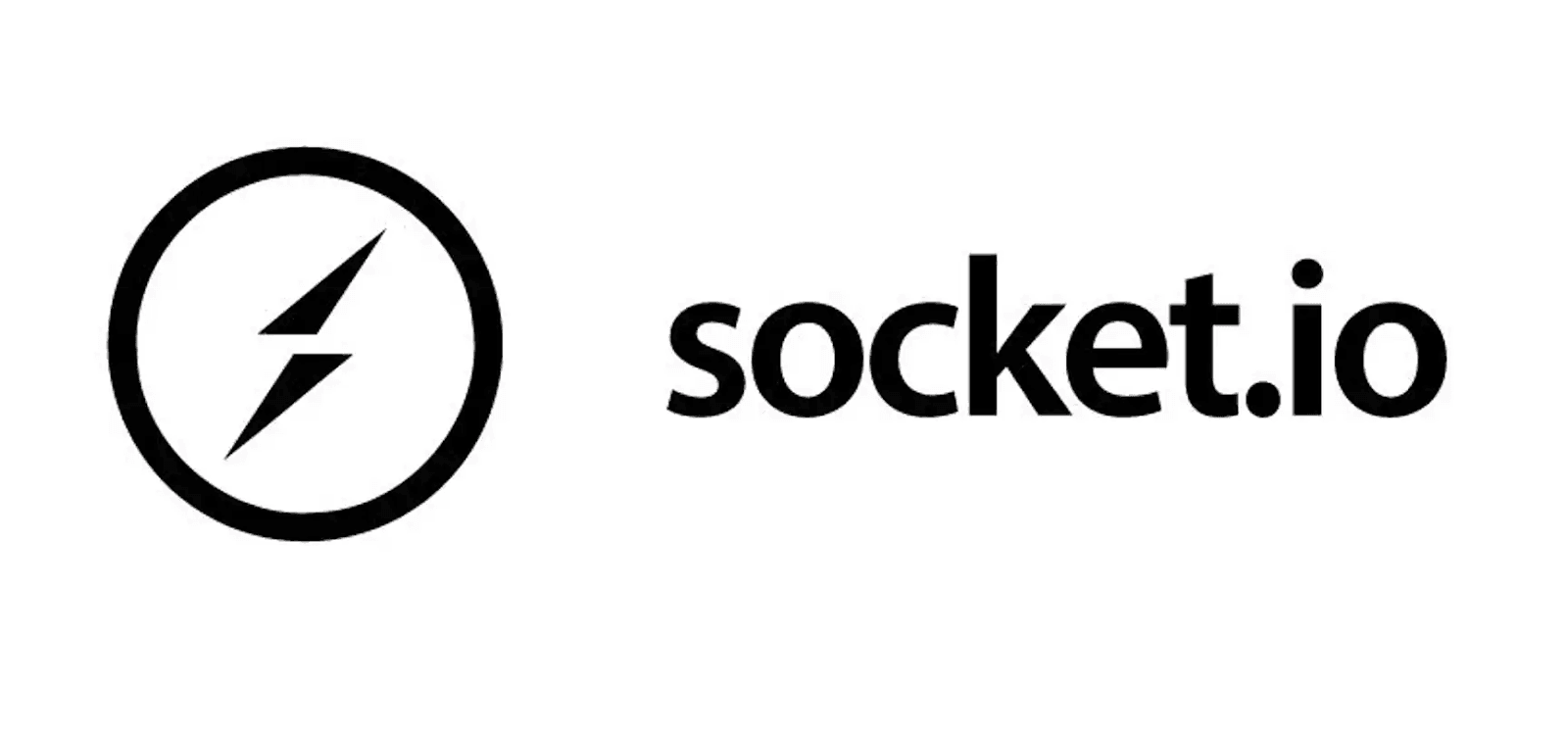
Though Socket.io is not a full framework, it adds WebSocket support, allowing real-time communication between client and server.
Socket.io is best, if you are building -
- Chat apps
- Multiplayer games
- Notification systems
It integrates well with Express or NestJS, and is a must-have for high-engagement apps.
Hire Trreta Technolabs And Build The Best App or Website with the Top Node.js Frameworks
Whether you’re a startup building your first MVP or an enterprise scaling across regions, choosing the right Node.js framework can shape your development journey.
From Express.js for its simplicity to NestJS for enterprise-grade architecture, each has its unique edge.
At Trreta Techlabs, we specialize in Node.js development, helping businesses match the right tech stack to their goals.
Want help picking the perfect framework? Contact us and let’s build something scalable, fast, and future-ready.
FAQs
Q1. What is the best Node.js framework for startups?
It really depends. For quick MVPs, Express.js or Meteor.js work great due to simplicity and community support.
Q2. Is Node.js just a framework or something more?
If you think that Node js is a framework, let us tell you that it is a JavaScript runtime, not a framework. It allows JS to run server-side and enables frameworks like Express, NestJS, etc.
Q3. How do I know which Node.js framework suits my project?
To find out which Node.JS framework is best for your project, start with goals. What are you looking for? Is it real-time features, speed, scalability, or security? Once you know the answer, choose a framework accordingly. Meanwhile, you can also contact us for a consultation.
Q4. Can Node.js be used for large enterprise systems?
Absolutely. Frameworks like NestJS and LoopBack are designed for enterprise-grade backend architecture only.
Q5. Does Node.js support AI integrations?
Yes. Many Node.js backend frameworks can integrate with AI/ML APIs, making it ideal for building intelligent platforms.
